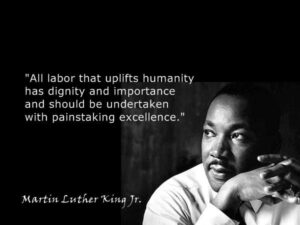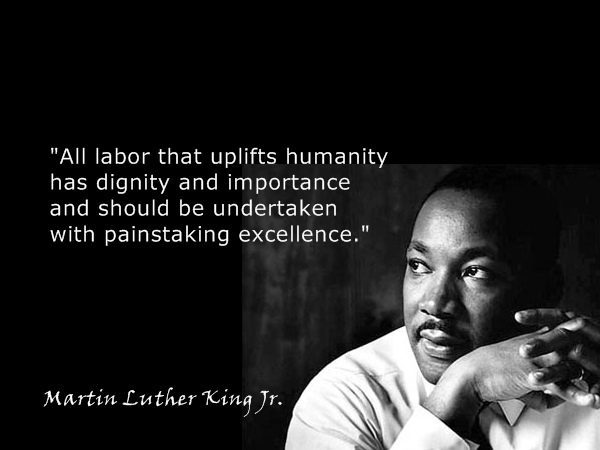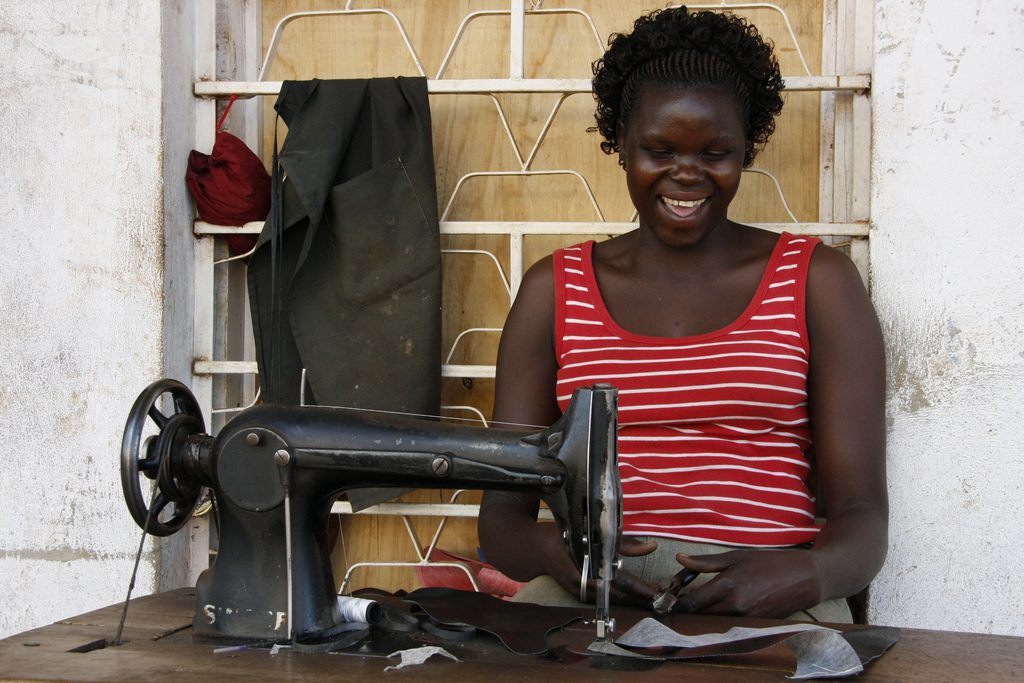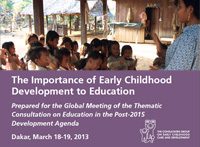 A week after the release of the UN HLP Report and its VET goal, I was in Paris to present at UNESCO my thoughts on what their ambitious, but still to be fleshed out, notion of transforming VET might mean. The contrast between the narrowness of the former agenda and the ambition of the latter is stark. As I argue in my recent Norrag post, it is of political value that a VET target has been included in the HLP report. However, the real work now needs to start in ensuring that the very limited current target, and the inadequate understanding of VET behind it, are themselves transformed. The target is in the education section of the HLP report but a supply-side, post-basic, Education Ministry view of VET will not bring about the necessary transformation. There is a real danger of a simplistic solution to an immensely complex set of issues.
A week after the release of the UN HLP Report and its VET goal, I was in Paris to present at UNESCO my thoughts on what their ambitious, but still to be fleshed out, notion of transforming VET might mean. The contrast between the narrowness of the former agenda and the ambition of the latter is stark. As I argue in my recent Norrag post, it is of political value that a VET target has been included in the HLP report. However, the real work now needs to start in ensuring that the very limited current target, and the inadequate understanding of VET behind it, are themselves transformed. The target is in the education section of the HLP report but a supply-side, post-basic, Education Ministry view of VET will not bring about the necessary transformation. There is a real danger of a simplistic solution to an immensely complex set of issues.
The central thesis of my presentation was that an important part of UNESCO’s call for a transformative approach to VET must lie in seeing its role in preparation for work and life in a radically different way to the current orthodoxy.
In my presentation, I stressed theories about work in order to problematise what has become simple for an education audience: VET is for the failures of the academic system and should be offered to all such failures (the NEETs of the HLP report) to get them into work as quickly as possible. Instead, I suggested that we needed to take some of the key concepts from literatures about work and ask what implications they have for VET. Amongst these key concepts are:
- work is central to any thinking about human life and development;
- however, work needs to be conceptualised in ways that stress how its potential to fulfil wider human needs can be maximised;
- and work includes work in what Feminist Economists call “the other economy”, that “concerned with the direct production and maintenance of human beings as an end in itself.” (Donath 2000: 115);
- that voice, agency and aspirations matter in all this (drawing heavily on capability thinking);
- whilst at the same time, access to and status of VET and many forms of work are unequal and structured profoundly by class, gender and race; and
- that new cultures of intergenerationally sustainable production and consumption must be developed.
In an incredibly rich discussion, we talked at length about these issues and about the extent to which some national cultures of learning and work appeared to give more value to vocational learning and technical work. Whilst we acknowledged that vocational learning must be in schools and post-school institutions, we also stressed that people need vocational inputs at different points in their lives, reinforcing the lifelong dimension of UNESCO’s vision. We discussed whether VET was always a last choice of young people, with me arguing about the wide range of rationales for vocational enrolment that we were seeing in data at Nottingham. We wrestled with the complex challenges of a changed sociology of work in which old jobs have gone and the nature of occupational identity and status are far more uncertain and fragile. We discussed the extent to which resilience was one of the core capabilities needed, and the extent to which VET could promote solidarity and a notion of duties alongside stressing individuals’ right and freedoms.
What then are the implications for VET? First, I insisted that preparation for work must be a core goal and focus of education and not just VET. However, it requires thinking more critically about the nature of the work and lives for which we are preparing learners. The current VET orthodoxy stresses skills for employability but there is a need and an opportunity to broaden this notion. The closeness of the concepts of “interactive employability” (Gazier 1999) and a “capability for work” (Bonvin and Farvaque 2006) may be particularly fruitful here in balancing agency and structure. I also want to make a plea for conceptualising VET’s role in supporting “the other economy”. Equally, we must consider how VET can promote sustainable consumption and production, rather than narrow notions of “green skills”. Too little of our academic and policy discussions about VET actually make any engagement with learners’ voices and aspirations: this needs to be rectified. The UNESCO vision stresses the need to re-imagine the role of providers and other intermediate institutions as bridge builders between learners and the economy. It is widely accepted that VET institutions are located both in education systems and labour market systems, but the full consequences need to be better grasped.
Finally, there is place for kind of philosophical approach that was at the heart of my presentation. However, critique and provision of theoretical alternatives are of limited value if we wish to change the world. One of the successes of the human development approach is that it has engaged with the orthodoxy through offering new measurements and policy analyses that have helped create a space for more radical suggestions. If we want to transform VET we need to develop a new policy toolkit and evaluative framework that can help practitioners and policymakers to move beyond their existing approaches.
References
Bonvin, J.-M. & Farvaque, N. (2006) Promoting Capability for Work: The Role of Local Actors. In Deneulin, Nebel & Sagovsky (eds.) Transforming Unjust Structures: The Capability Approach. Springer, Dordrecht.
Donath, S. (2000) The Other Economy: A Suggestion for a Distinctively Feminist Economics. Feminist Economics 6, 1, 115-123.
Gazier, B. (1999) Employability: An evolutionary notion, an interactive concept. In Gazier (ed.) Employability: Concepts and Policies. Institute for Applied Socio-Economics, Berlin.






The report covers the critical aspects of development. We should congratulate the team for such a erudite work of both practical and academic value.
However, all development that has taken place since centuries was the result of learning in what ever form , formal, non-formal and informal, reference to the learning and development would have been of relevance in this work. More so in respect to how the world could direct education to learning , in all forms, where the value of nature and sharing of resources that are dwindling would have a place in this valuable document. Development should be in terms of saving what we have since what we loose in the process of development may not be able to be replenished.
S.B. Ekanayake Ph.D
Former Basic Advisor Central Asia